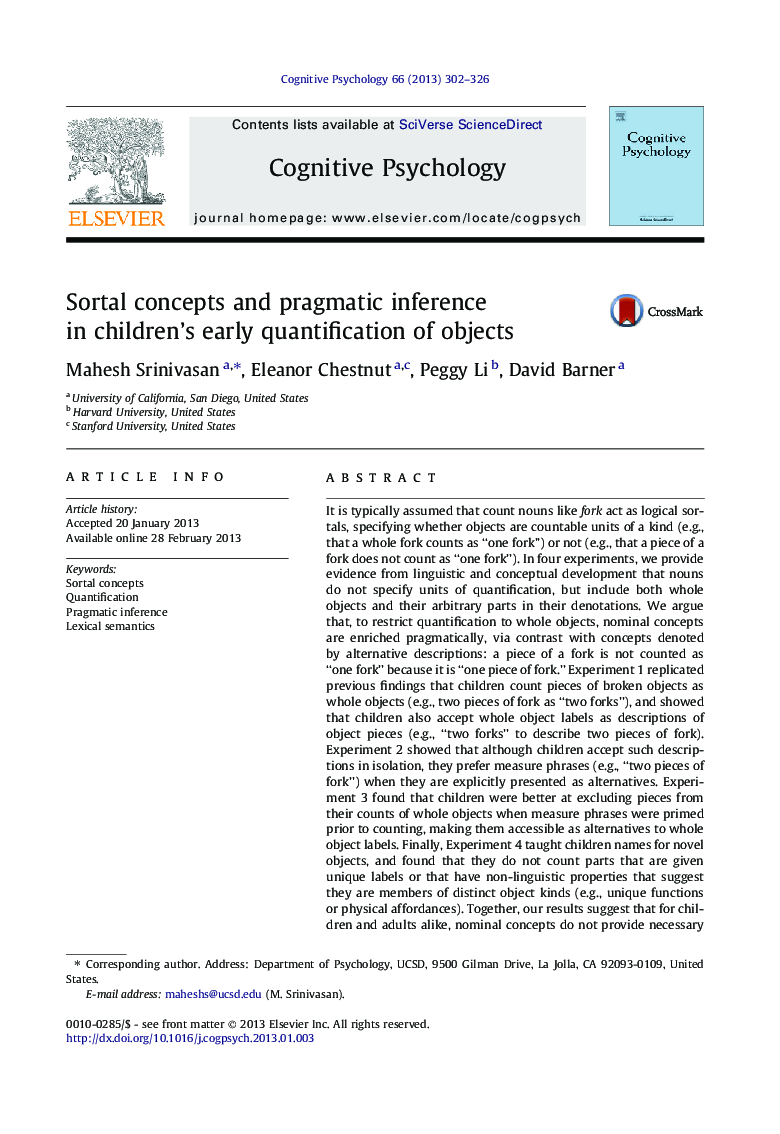| کد مقاله | کد نشریه | سال انتشار | مقاله انگلیسی | نسخه تمام متن |
|---|---|---|---|---|
| 916918 | 919003 | 2013 | 25 صفحه PDF | دانلود رایگان |

It is typically assumed that count nouns like fork act as logical sortals, specifying whether objects are countable units of a kind (e.g., that a whole fork counts as “one fork”) or not (e.g., that a piece of a fork does not count as “one fork”). In four experiments, we provide evidence from linguistic and conceptual development that nouns do not specify units of quantification, but include both whole objects and their arbitrary parts in their denotations. We argue that, to restrict quantification to whole objects, nominal concepts are enriched pragmatically, via contrast with concepts denoted by alternative descriptions: a piece of a fork is not counted as “one fork” because it is “one piece of fork.” Experiment 1 replicated previous findings that children count pieces of broken objects as whole objects (e.g., two pieces of fork as “two forks”), and showed that children also accept whole object labels as descriptions of object pieces (e.g., “two forks” to describe two pieces of fork). Experiment 2 showed that although children accept such descriptions in isolation, they prefer measure phrases (e.g., “two pieces of fork”) when they are explicitly presented as alternatives. Experiment 3 found that children were better at excluding pieces from their counts of whole objects when measure phrases were primed prior to counting, making them accessible as alternatives to whole object labels. Finally, Experiment 4 taught children names for novel objects, and found that they do not count parts that are given unique labels or that have non-linguistic properties that suggest they are members of distinct object kinds (e.g., unique functions or physical affordances). Together, our results suggest that for children and adults alike, nominal concepts do not provide necessary and sufficient criteria for excluding parts from object kinds. To specify units of quantification – and do the work of sortals – concepts are contrasted with one another and enriched pragmatically.
► We examine why children under age 7 count broken pieces of objects as whole objects.
► Children are less likely to count pieces as wholes when measure phrases are primed before counting.
► Parts with unique functions or physical affordances are also less likely to be counted.
► Units of quantification are identified via pragmatic inference, by contrasting concepts with one another.
► For children and adults, concepts may include both whole objects and arbitrary parts as kind members.
Journal: Cognitive Psychology - Volume 66, Issue 3, May 2013, Pages 302–326